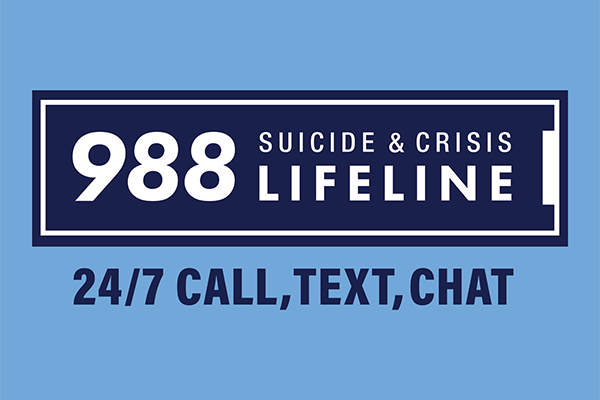Share This Article:

Case Management Focus
In this post, I want to remind readers that September is National Suicide Prevention Month. As nurse case managers, we have a role in helping to recognize people in distress and help them work through dark times. Recognizing the signs of depression and other mental health conditions that leave people feeling helpless is the first step.
According to the National Institute of Health, warning signs that could lead to suicide could include:
- Talking about suicide:
- Wanting to die
- Guilt or shame
- Feeling like a burden to others
Feelings to be aware of:
- Empty, hopeless, trapped, or having no reason to live
- Extremely sad, more anxious, agitated, or full of rage
- Unbearable emotional or physical pain
Behavioral Changes to be aware:
- Making a plan or researching ways to die
- Withdrawing from friends, saying goodbye, giving away essential items, or making a will
- Taking dangerous risks, such as driving extremely fast
- Displaying extreme mood swings
- Eating or sleeping more or less
- Using drugs or alcohol more often
If these warning signs are recognized, help the person get help as soon as possible, especially if the behavior is new or has increased.
Case managers must advocate for their patients and help them find resources to help them.
Being open to talking to someone who says they are depressed can be the spark to get help. Never underestimate the power of a call, a visit, or a kind word. Listening to your patients and their family members and recognizing signs of depression they may display is essential. Doing so can help someone realize that they are cared for and empower them to cope with their problems and that tomorrow is a new day.
In the area of workers' compensation, injured workers are susceptible to suicide, so speaking up when we recognize signs is essential. Those in pain, or who have sustained catastrophic injuries and lost their life work or find themselves in financial trouble are most at risk. Opening a dialogue with injured workers is the first step. Keeping the conversation going in the workers’ comp space could save lives.
In closing, I want to share some resources that all can be used in helping someone who you might suspect as being suicidal or at risk for becoming suicidal. Review them and keep them in your resource database for future use.
Resources to check out and utilize:
Substance Abuse and Mental Health Service Administration: https://www.samhsa.gov/newsroom/observances/suicide-prevention-month
National Association of Mental Health: https://www.nami.org/get-involved/awareness-events/suicide-prevention-month
988 Suicide and Crisis Lifeline: https://chat.988lifeline.org
Speaking Up about Suicide Risk: How to Remain Vigilant in Workers’ Comp https://riskandinsurance.com/speaking-up-about-suicide-risk-how-to-remain-vigilant-in-workers-comp
The Center for the Study of Traumatic Stress: https://www.cstsonline.org
california case management case management focus claims compensability compliance courts covid do you know the rule emotions exclusive remedy florida FMLA fraud glossary check health care Healthcare hr homeroom insurance insurers iowa leadership medical NCCI new jersey new york ohio osha pennsylvania roadmap Safety state info technology texas violence WDYT west virginia what do you think women's history women's history month workcompcollege workers' comp 101 workers' recovery Workplace Safety Workplace Violence
Read Also
About The Author
About The Author
-
Anne Llewellyn
Anne Llewellyn is a registered nurse with over forty years of experience in critical care, risk management, case management, patient advocacy, healthcare publications and training and development. Anne has been a leader in the area of Patient Advocacy since 2010. She was a Founding member of the Patient Advocate Certification Board and is currently serving on the National Association of Health Care Advocacy. Anne writes a weekly Blog, Nurse Advocate to share stories and events that will educate and empower people be better prepared when they enter the healthcare system.
More by This Author
- Apr 08, 2025
- Anne Llewellyn
- Mar 31, 2025
- Anne Llewellyn
Read More
- Apr 18, 2025
- Claire Muselman
- Apr 18, 2025
- Chris Parker
- Apr 16, 2025
- Frank Ferreri
- Apr 16, 2025
- Claire Muselman
- Apr 16, 2025
- Chris Parker
- Apr 16, 2025
- Chriss Swaney




